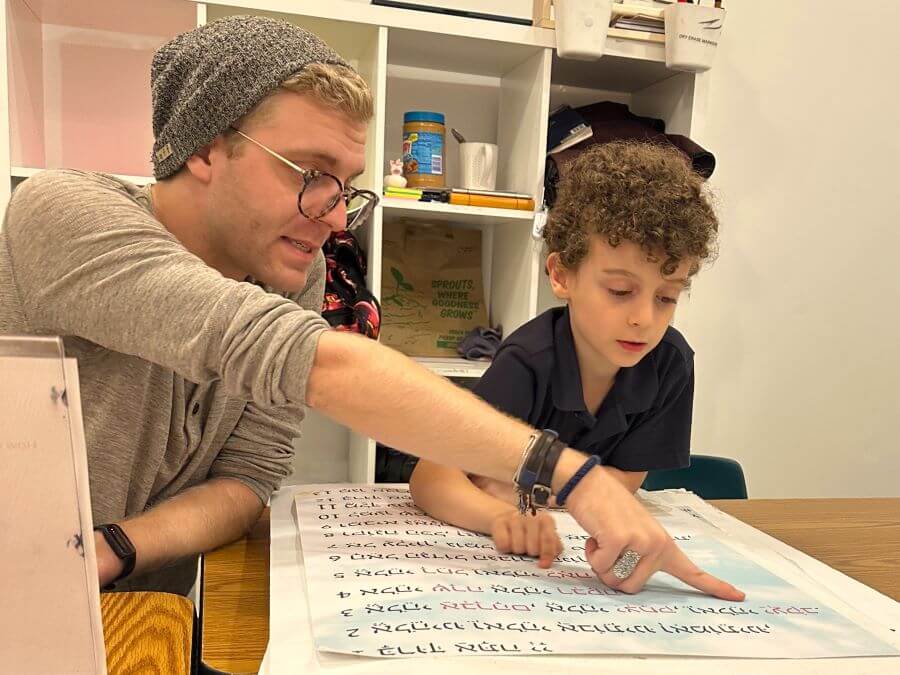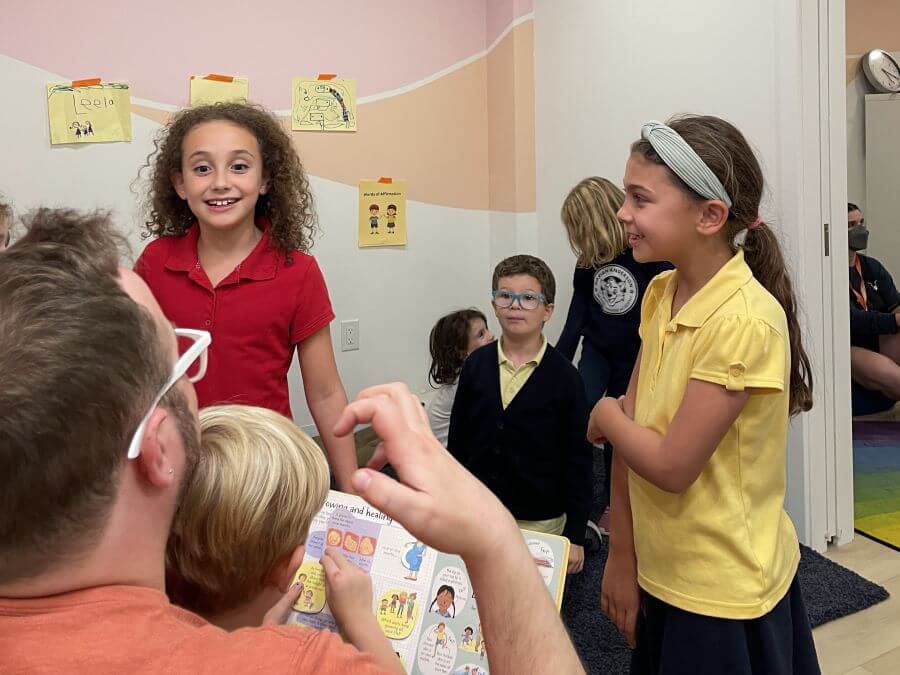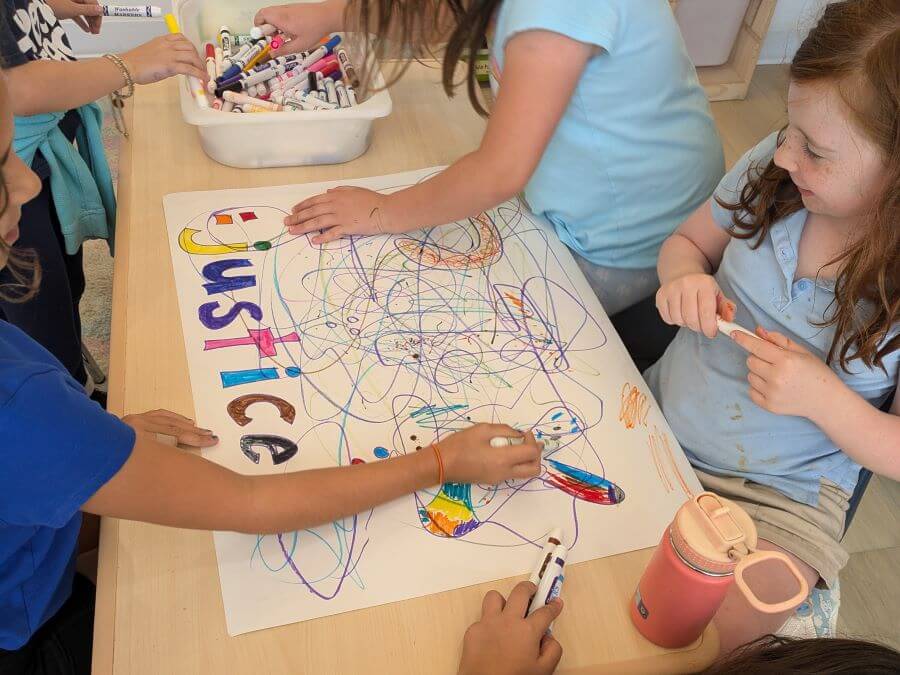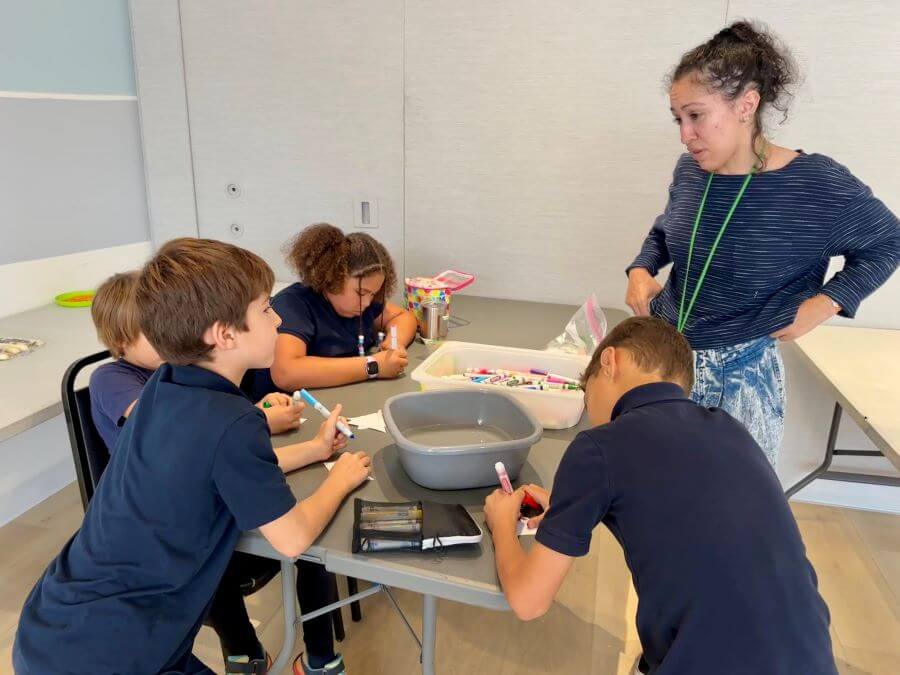
Starting the school year off by chasing after tzedek (justice) can be a challenging feat to accomplish, but this year especially our Makom Lab School is in a prime position to do this first hand! Being in the third week and going into the fourth week of teaching at Makom, things are finally starting to fall into place, but that can all change at a moment’s notice. All of a sudden, there are Olympic Games to watch, Political Candidates to research, wars happening in places outside our country that are near and dear to our hearts, and before we know it the school year will be over. We will have gone through another cycle of attempting to chase after justice with no results. So how do we stop that cycle? How do we actually accomplish instead of simply attempting? 
At Makom, there is an unwritten rule that we do not leave things unsaid. Everyone has feelings, ideas, questions, and different ways of approaching a situation. When I say everyone is like this, I mean everyone from Kindergarteners to their grownups to their grownups’ grownups. With so much otherness flying around it can already be difficult to see a clear path to chasing after tzedek. My favorite quote from an educator is, “take chances, make mistakes, and get messy.” This quote is the answer to not leaving anything unsaid. If you have a question, take the chance and ask it! You’ll never know the answer unless you do. Sometimes as a result of those chances we take we will make a mistake. That does not mean we are terrible, no good, very bad humans. Everyone makes mistakes, and those mistakes can be messy, but that’s okay because we can always learn something from our mistakes. At Makom, we analyze every part of the decision-making process with kiddos whether it’s through brainstorming ideas during TEXTploration or Shulchanot Avodah (working stations). Specifically, during Shulchanot Avodah, kiddos can interact with Jewish text, traditions, and values through hands-on activities.
Learners have heard what the Nevi’im (Prophets) from the Tanakh shouted at Bnei Yisrael and then created their own versions of prophets to speak to our community today. Kiddos were able to see from both perspectives how telling a community what to do can be challenging, comes with a lot of responsibility, and that sometimes God’s message to the Jewish people can be hard to understand. That’s the first part of the formula.

Now comes the second part! In order to move from “attempting” to “accomplishing” we need to take the lessons we’ve learned, the mistakes we’ve made, the mess we’ve made, and evaluate what we’ve learned from it all. Next, it’s time to make the adjustments we noticed need to be made. This might look like apologizing to your neighbor or co-worker or it could look like making a flow chart of everyone’s responsibilities for a task. Here at Makom, we have a few starting points for evaluating our past actions. We first use the Torah as our compass. Torah containing the story of our ancestors and early communities is just what we need to evaluate our actions. Just like we missed the mark in the past, so did they! Not even our ancestors got it right on the first try so why should we put so much pressure on ourselves? The Torah is not an instruction manual on how to live a perfect life (however there are a lot of do’s and don’t’s) but if we use it as a guiding post to connect us to our ancestors and our first communities we can break the cycle of attempting to chase after tzedek and actually achieve tzedek for everyone.

